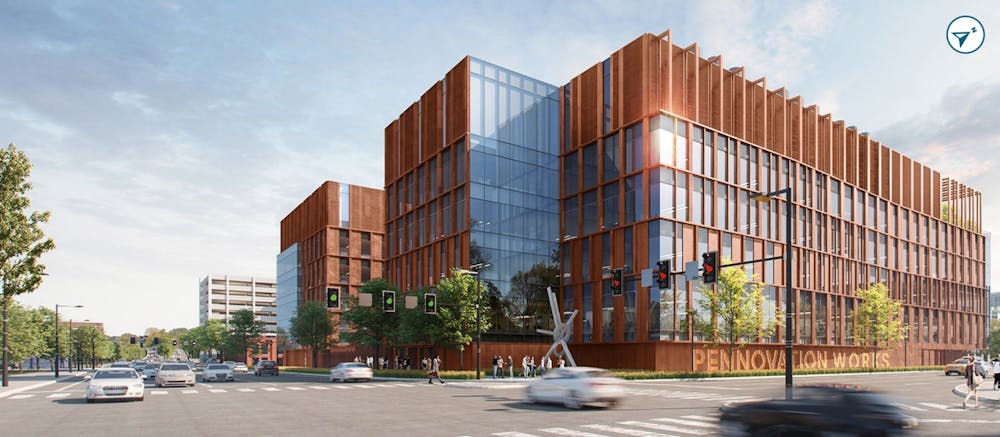Construction of the Longfellow Research and Biomanufacturing Building in the Pennovation Works campus will begin next year thanks to a 75-year ground lease and an investment of $365 million. The project will be undertaken by Longfellow Real Estate Partners.
Designed by the architectural firm Jacobs, the 455,000-square-foot facility is predicted to open its doors in 2025, Penn Today reported. The new laboratories and biomanufacturing facilities’ purpose is to bring more biotech companies to stay in Philadelphia, with the added advantage of its proximity to Penn’s campus.
The Longfellow Research and Biomanufacturing Building is expected to join the existing two Pennovation Works facilities, the Pennovation Center and Pennovation Lab, across the Schuylkill River at 34th Street and Grays Ferry Avenue. The Pennovation Center and Pennovation Lab, inaugurated in 2016 and 2021, respectively, house many of the University's innovation efforts including the Pennovation Startup Accelerator, laboratories run by Penn students and staff, and the Engineering school’s GRASP (General Robotics, Automation, Sensing and Perception) robotics lab.
Senior Executive Vice President Craig Carnaroli believes that Philadelphia is the right location for this new biotechnological development.
“What you’re seeing all across Philadelphia now is that there is no shortage of projects that are looking to expand, especially in this science and technology sector, whether it’s Schuylkill Yards, University City Science Center, or the Navy Yard. The proximity of Pennovation Works to the whole Penn Medicine complex, as well as Penn Engineering and other schools, is a huge asset,” Carnaroli told Penn Today.
The biotechnological sector is gaining increasing popularity in Philadelphia, with cell and gene therapy successes at Penn. This includes Dr. James M. Wilson’s Gene Therapy Program at the Perelman School of Medicine, which strives to develop the next generation of gene transfer vectors to treat a variety of diseases.
Carnaroli believes that the life sciences facility will help Penn faculty and students remain on campus while continuing their own professional work.
“Our hope is that as faculty spinout companies grow, these facilities will be an option for them, keeping their work proximate to campus,” Carnaroli added. “[Postdocs and PhD students] who are interested in continuing their work in this type of space can see that they can pursue their career here, in a thriving ecosystem in Philadelphia, and not feel like they have to relocate.”









